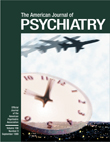Cognition
An important function of the human brain is learning and memory. Environmental demands on memory vary greatly. In some instances, we are required to keep information “online” for active use for several seconds, whereas in other instances, we are required to store information for retrieval days, weeks, or even years later. Take, for example, the long-term memory of temporally unique events, commonly called episodic memory. This form of memory is characterized by having a unique context associated with a learning episode. Episodic memory can be seen as a specialized form of more general memory functions that permits the storage and retrieval of facts and bits of information. However, episodic memory differs in that it requires access to the context and personal participation in an event that mark it as a specific episode in memory. A set of interdependent brain regions is clearly critical to the successful learning, storage, and retrieval of episodic memories.
Our series of studies has shown that a system of brain regions is involved in the more general aspects of the retrieval of word information and that additional regions become active when words must be specifically retrieved from episodic memory. In particular, when words are retrieved from memory—regardless of the context in which they were learned—a network of brain regions becomes active, including the left frontal cortex along the inferior frontal gyrus and extending into the frontal opercular cortex, as well as multiple regions of the supplementary motor area, the anterior cingulate, and the premotor cortex. These regions can be thought of as the basic verbal retrieval and processing system, although variations from this basic pathway can sometimes be found. When a unique context is associated with the learned words, and the task is to retrieve words from that specific context, then several additional regions are recruited along with the basic system. These additional regions include multiple areas of the right frontal cortex. These areas are not activated by many kinds of nonepisodic tasks that demand difficult and time-consuming verbal elaboration but are almost always activated during episodic remembering tasks, even when they are relatively easy. Thus, these regions of the right frontal cortex are likely to be involved in mediating or monitoring the additional context memory demands that are required by retrieving words from particular episodes. Of growing interest is the possibility of distinguishing among the specific processing contributions of these regions—particularly the right anterior frontal cortex and the right dorsolateral frontal cortex—to the retrieval of episodic memories and how these processing contributions play a role in other tasks with different types of memory demands.
Part of figure reproduced by permission of the Society for Neuroscience (Buckner et al., J Neurosci 1996: 16:6219–6235).

These transverse functional brain images were acquired by using positron emission tomography and represent areas of higher activation in an episodic memory task of recalling words, as compared to rest. The areas are color coded such that the most active regions are in brighter colors. The Z axis labeled on the bottom reflects the distance the section falls above a plane intersecting the anterior and posterior commissures (in millimeters). Of importance is the finding that a network of brain areas is active during the episodic retrieval of words, including many regions activated by numerous verbal processing tasks that do not specifically involve the retrieval of episodic memories. A subset of areas, such as the right anterior frontal area labeled D, is more selectively (but not exclusively) activated by episodic retrieval tasks, suggesting that this region participates in a process central to either monitoring or aiding acts of retrieving episodic memories.



